In
this tutorial, we’ll learn how to take splattered paint Photoshop
brushes and apply them to the contours of a model’s face. This is a
relatively simple technique, which yields excellent artistic results.
Let’s get to it!
Final Image Preview
Take
a look at the image we’ll be creating. Want access to the full PSD
files and downloadable copies of every tutorial, including this one?
Join Psd Plus for just $19/month.

Video Tutorial
Our video editor Gavin Steele has created this video tutorial to compliment this text + image tutorial.
Preparation
First
thing you will need to do to create this effect is find some nice
paint splatter/spray brushes. For this particular piece I used brushes
from Brusheezy: 842-Splatter. You’ll also need an image to apply this to. In this case, I shot this image myself.
Step 1
Copy the background and paste it onto a new layer. Rename the new layer Subject and turn the background layer to white.
Create
a new layer labeled “Extra Skin.” Then using the Clone Tool, Alt-click
on other parts of the face that best match the color of skin you want to
copy. I suggest using a soft brush to blur out the edges.
For
this I usually just play around with the Cloning Tool until I get close
to something that looks right. This may take some experimentation, as
you have to pay close attention to the light source in the photograph.
To see a more in-depth tutorial on the cloning tool you can visit this page on Psdtuts+.
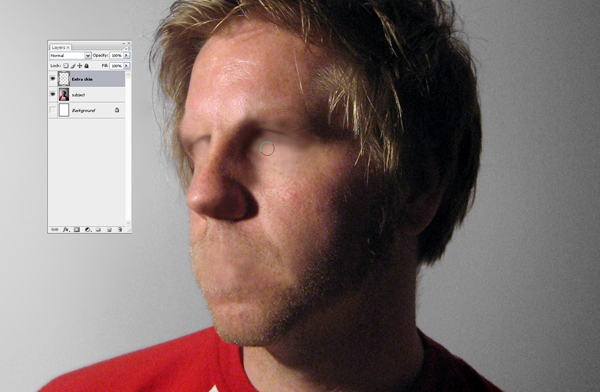
Step 2
Once
we have covered all the facial features, select the “Extra Skin” layer
and the "Subject" layer, then press Command + Alt + E on to merge the
layers into a new layer. Rename this layer “Faceless Subject.”
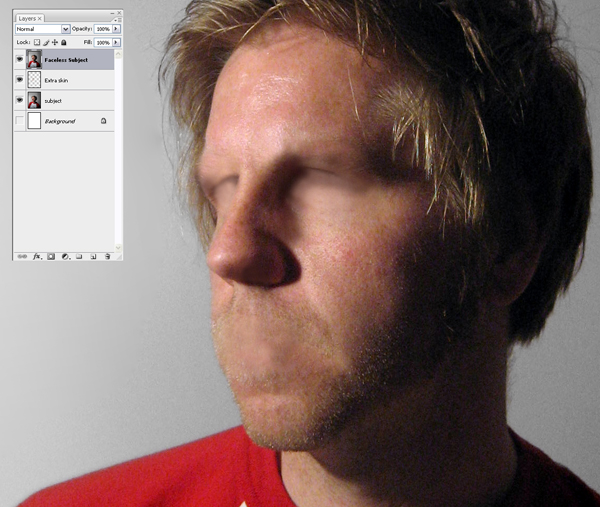
Step 3
Now
we can start building our paint splatter area. Create a new layer and
call it “Paint map.” Select the Brush Tool and start to paint out the
area you want the paint splat to appear in. This is where your paint splatter/spray brushes will come in handy.
It
doesn’t matter what color you use; here I have chosen yellow
(#ffc924). It also helps to lower the opacity of this layer so that you
can better line up the splats over the subject’s face.
Make
sure that you only paint where you want the splatter to occur, you may
have to paint/mask/erase a bunch to get a nice paint splatter. Take
your time with this Step; it may be the most important one of the
process.
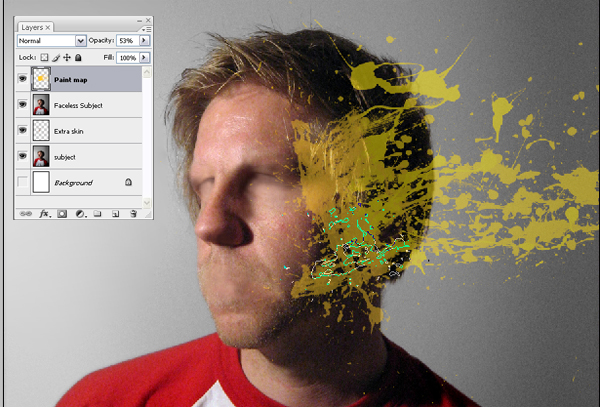
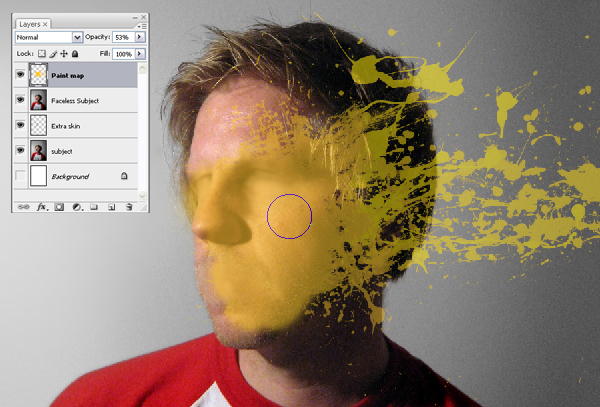
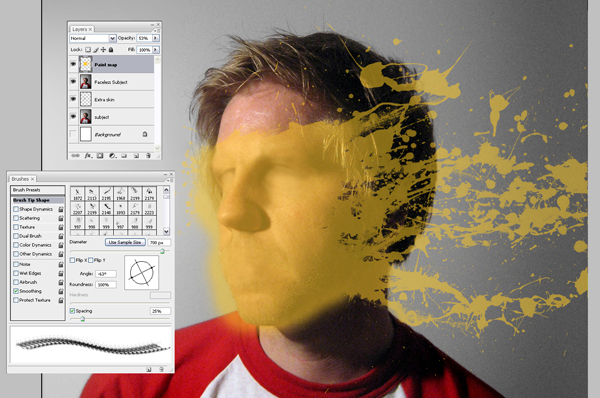
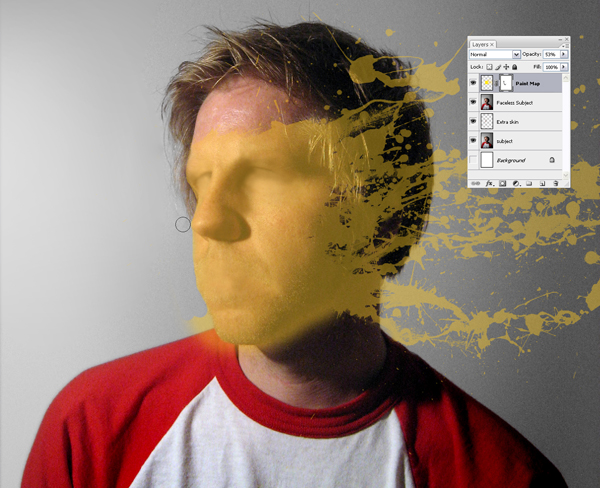
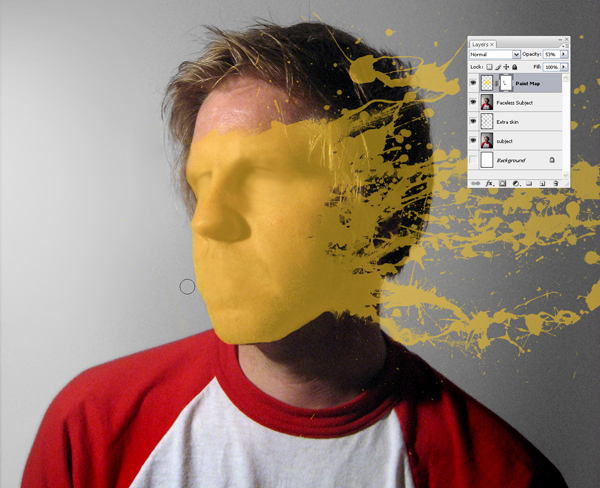
Step 4
Once
completed you will want to get rid of any layer masks by
right-clicking on the “Paint map” layer and selecting Convert To Smart
Object. After that, change the layer style of the “Paint Map” layer to
Overlay. You should now have something that looks similar to the picture
below; keep in mind that no two paint splatters will be exactly the
same.
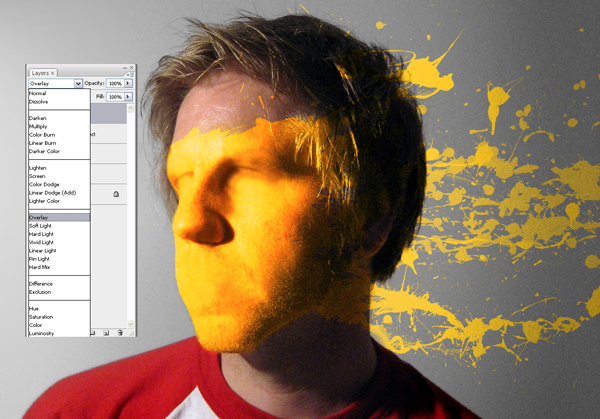
Step 5
Next
create a new layer under the “Paint map” layer, and name this layer
“Extra Skin 2.” With this layer selected Command-click the "Paint map"
layer to select the paint splat you have created. Next click on the Add
Layer Mask button at the bottom of the layers palette.
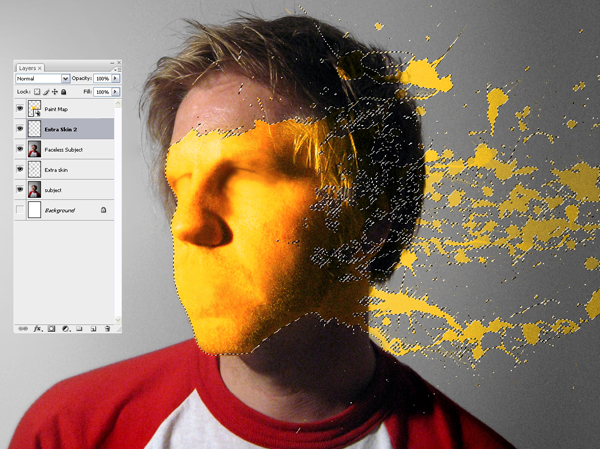
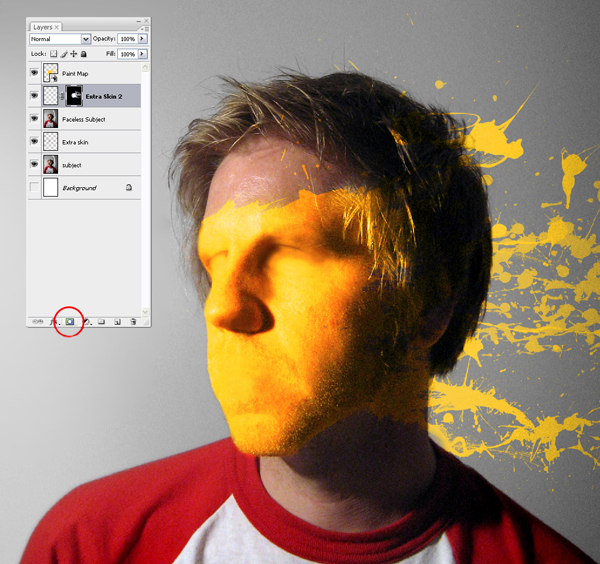
Step 6
Turn
the visibility of the “Paint map” layer off. With the “Extra Skin 2″
layer selected, grab your Cloning Tool again and start copying portions
of skin into the area that has no skin.
Again
try to match the lighting of the photo; you are basically creating an
extra skin layer that will become paint once colored. I find it
helpful to turn off the Aligned option for the cloning tool in the top
tool bar.
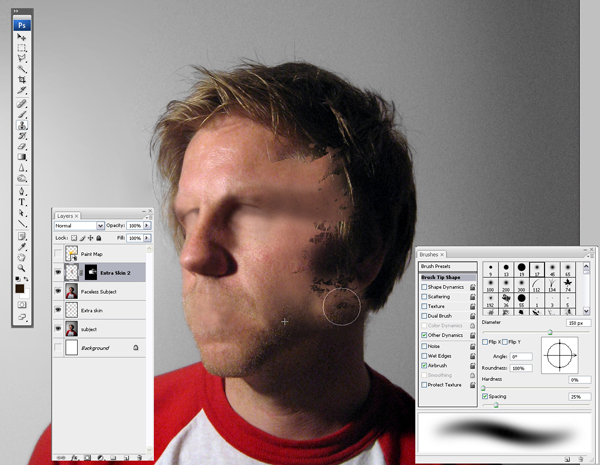
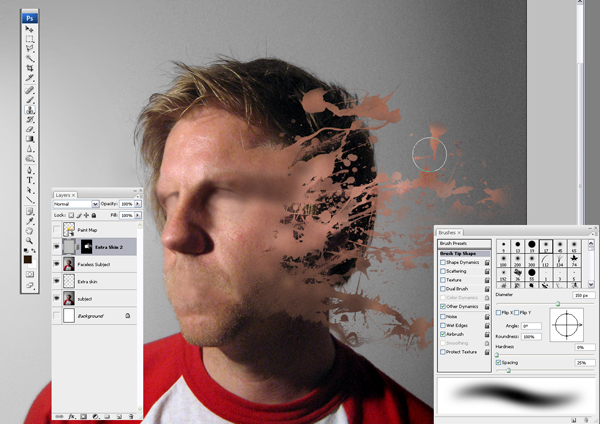
Step 7
Once
you’ve created a nice splatter area made from skin, turn the
visibility of your “Paint map” layer back on. You should have something
that looks like the image below.
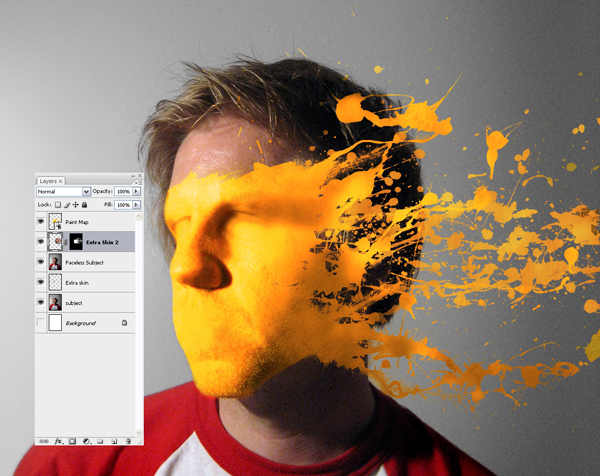
Step 8
Create
a new layer above the “Extra Skin 2″ layer and name it "shadow." While
holding down the Alt key, click between the “Extra Skin 2″ layer and
"shadow" layer to clip it.
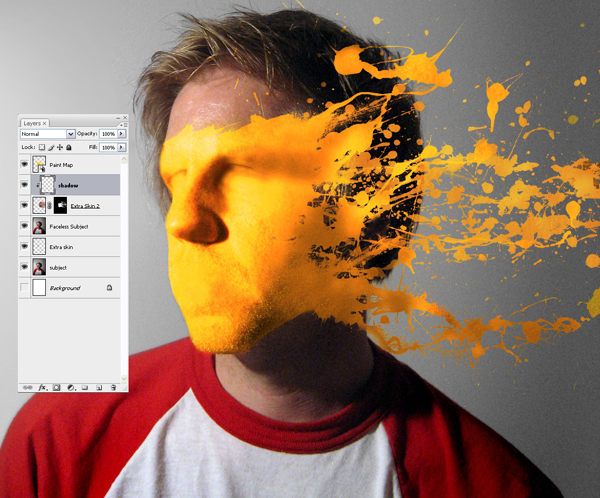
Step 9
Grab a big, soft brush and paint some black to amp up the shadows needed for the “Extra Skin” layer.
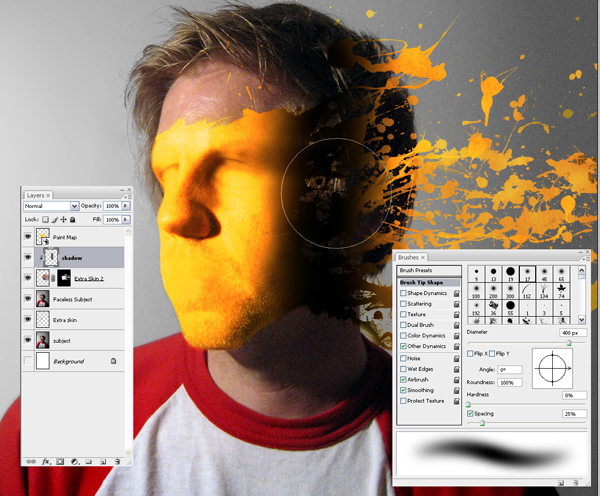
Step 10
Turn the opacity of the "shadow" layer down to around 75%.
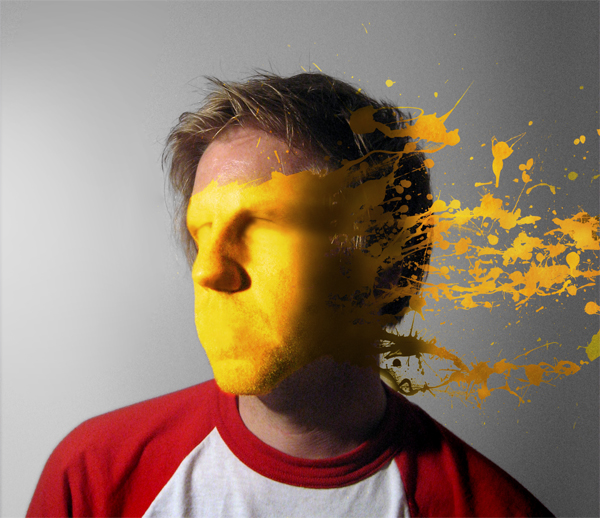
Step 11
Create
a new layer above the “Faceless Subject” layer and name it “Paint
Background.” With the foreground color set to black, start painting
some paint splats with the splatter brushes.
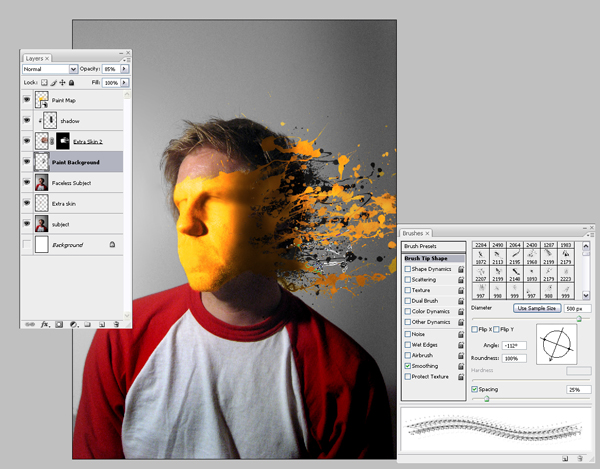
Step 12
All
we have to do now is add a little bit of shadow to create the illusion
the paint is lifted off the face. First create a new layer and name it
“Shadow 2,” then Command-click on the “Paint Map” layer to select it.
Making sure you are still on the “Shadow 2″ layer, fill the selection
with black.
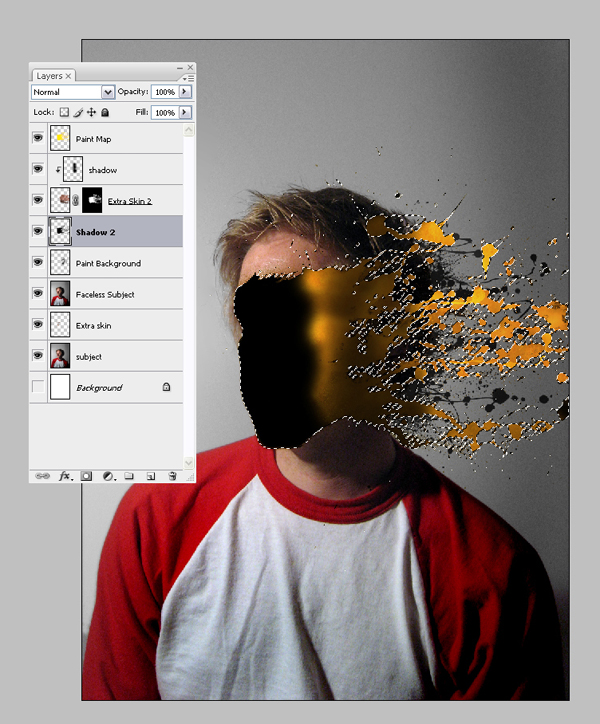
Step 13
Making sure the selection is still active, click on the Create Layer Mask button on the the bottom of the layer’s palette.
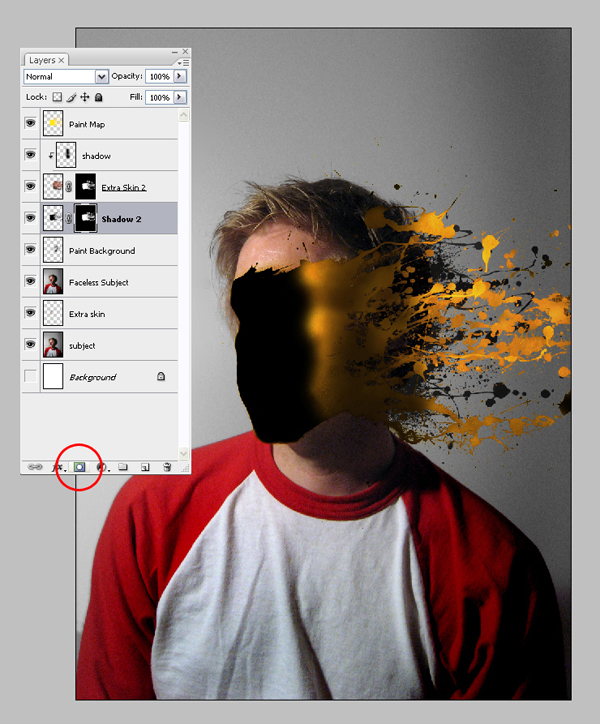
Step 14
Select
the mask for the "Shadow 2" layer and invert it by pressing Command +
I, or going to Image > Adjustments > Invert. This should invert
the mask and hide the black area we just filled.
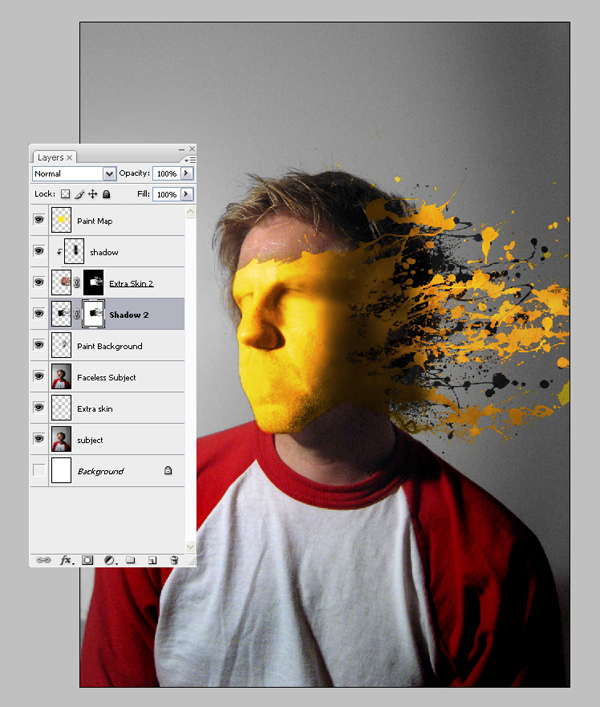
Step 15
Disable
the link between the mask and the shadow paint by clicking on the
chain between the layer icon and the mask, as shown.
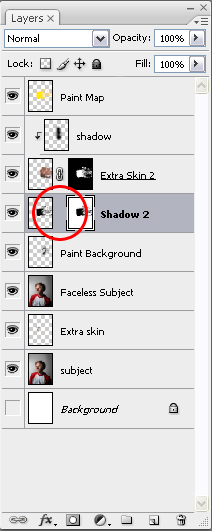
Step 16
Make sure the paint portion of the “Shadow 2″ layer is selected and go to Edit > Transform > Warp.
Slightly
adjust the shadow so that it peeks out from behind the paint splat.
Depending on how much you want the paint to appear lifted, you can adjust it a lot or a little. Once you have the shadow right where you want it, apply the change.
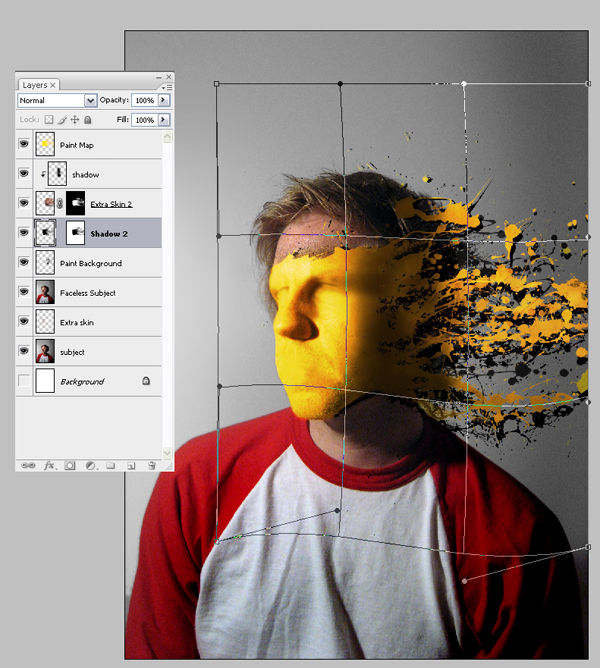
Step 17
You
are bound to have some unwanted shadow from the "Shadow 2" layer; to
clean it up, simply paint over what you don’t want in the layer mask.
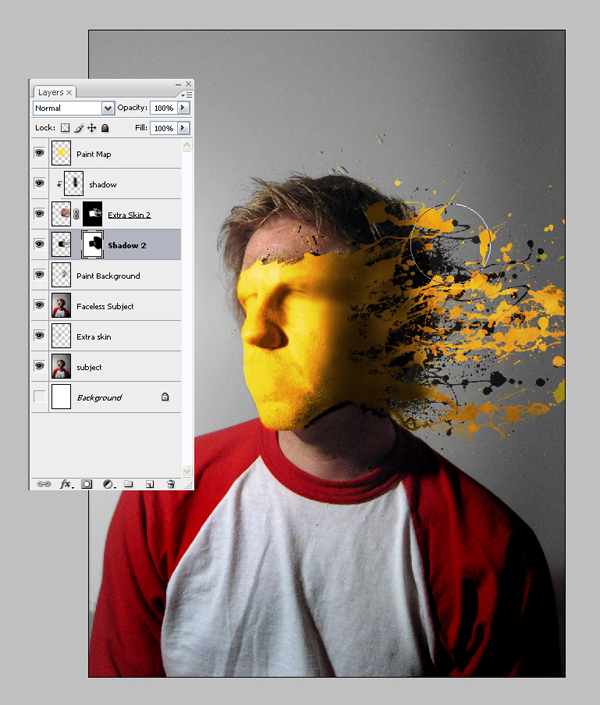
Step 18
Lower the opacity of the shadow to around 72% and you should be all set!
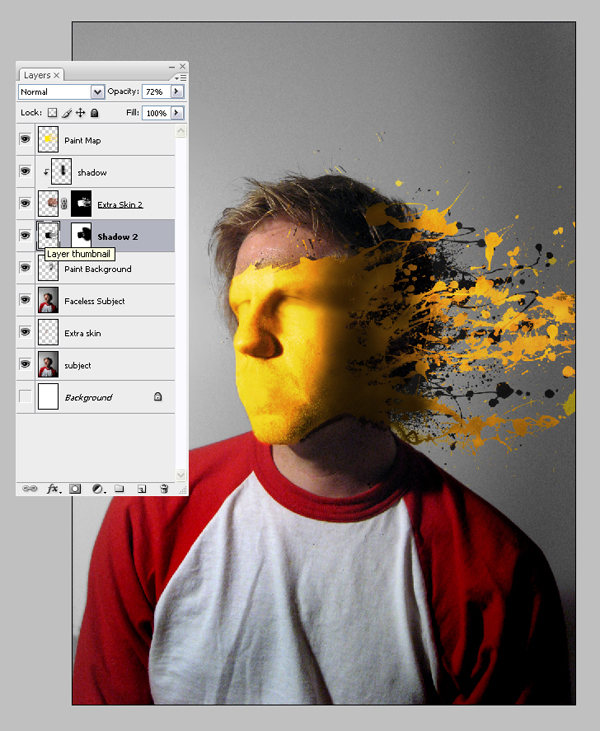
Conclusion
The final image is below. Enjoy applying these techniques in your own work!

Subscribe to the Psdtuts+ RSS Feed for the best Photoshop tuts and articles on the web.
Tidak ada komentar:
Posting Komentar